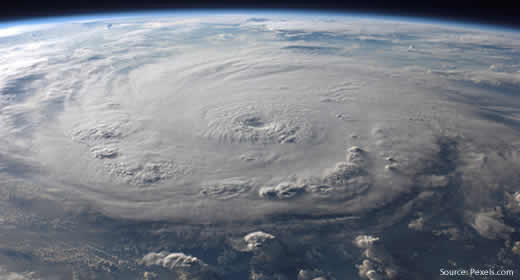
In "Hurricanes drive immigration to the U.S.," published in The Conversation, Dean Yang and Parag Mahajan describe findings from their recent National Bureau of Economic Research (NBER) working paper, "Taken by storm: Hurricanes, migrant networks, and U.S. immigration."
"In the last few weeks, hurricanes Harvey, Irma and Katia have cut paths of destruction in the Caribbean, Mexico, and the U.S. While recovery and reconstruction will be an immense effort in Houston and Miami, it will likely be slower in poorer and smaller countries outside the U.S.," they write. "There, many people suffering from the aftermath of these storms may eventually choose to move elsewhere."
Yang and Mahajan, a PhD candidate in public policy and economics, conducted research to understand whether hurricanes in a given country resulted in higher immigration from that country to the U.S. Creating a hurricane severity index and comparing it with restricted-access U.S. Census data, they found that the U.S. does experience a bump in new immigration from countries hit by hurricanes—particularly from countries with larger populations of immigrants already settled in the U.S.
Looking at U.S. immigration data, the researchers found that migrants living in the U.S. were helping new migrants arrive, particularly through the family reunification process (green cards), but probably also by helping new migrants apply for tourist or business visas. In other words, Yang and Mahajan write, U.S. immigration policy favors family members of U.S. citizens and permanent residents when deciding who can seek safe haven in the U.S. following a natural disaster. “Others without such connections are not so lucky, and must find other means of coping with the aftermath."
More news from the Ford School